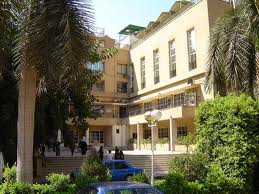Normally you would sit at interview, meet some of your future colleagues, read an inspection report and go on a school tour. So, with just an hour skype interview for international schools, how do you go about assessing whether this one is a great school?
It isn’t easy but thanks to the information available on the internet, it is getting easier.
Accreditations and memberships are your friends
The accreditation status and which body a school chooses to be accredited by is probably the most important indicator of a quality of a school. Our feeling is that those who have full accreditation by The Council of International Schools (CIS), the International Baccalaureate (IB), or the North Eastern Association of Schools and Colleges NEASC tend to be amongst the most reputable as their accreditation process is the most stringent. The Council of British International Schools (COBIS) follows an accreditation process similar to that of Ofsted, the UK regulating body, and is also very thorough.
Many schools will quote quite a number of memberships. Whilst these are useful to have as they may lead to sharing of expertise and professional development, they are mostly paid for memberships and therefore carry less weight than an accreditation.
This article gives you a good understanding of the different accreditation and membership bodies: https://www.teacherhorizons.com/advice/assessing-and-researching-international-schools
Mission and vision
Schools usually have their Mission Statement and Vision firmly planted in the main section of their website. However, ask yourself how closely the school’s site appears to match their mission statement and vision. For example, if they talk about cultural understanding, what evidence is there that the school has extra-curricular activities that support such a statement. Photos and details of such activities should be available to any user. You also have to ask yourself the question as to whether the school’s mission statement and values match that of your own. My last school’s slogan was “Our business is learning” – that certainly didn’t match my values as I believe education shouldn’t be first and foremost a business!
Decision-making and leadership
Don’t underestimate the importance of good leadership in a school. The quality of the Head of School and the leadership team can have a dramatic impact on any school. Check the Head out on Linked In and look into his background. It is worth seeing whether they have come from quality institutions and how long they have been a Head for. Asking about line management and the chain of command is something worth finding out about and gives an indication as to how well organised a school is. Some research into the school’s governance is important too. Finding out whether the school operates as a profit making business and how the board of governors is selected are both issues that are likely to affect the quality of the school.
Extra-curricular offerings and parental involvement

Parent Teacher Associations (PTA) can be a mixed blessing! I have met amongst the most irritating, nit picking people in these groups as well as some of the most helpful motivated supporters of a school. However, a thriving PTA often means active parent involvement in the school. These parents are far more likely to be supportive of the school, their children’s progress and be keen to actively engage in their children’s education. Likewise, assessing whether a school offers a wide variety of extra-curricular activities is important as it not only shows that the school are concerned about developing well-rounded teachers but also that they are seeking well-rounded teachers! Being involved in a school beyond the classroom is often one of the most enjoyable aspects of working at an international school.
Staff professional development
The vast majority of schools will happily pay for you to go on a 3-4 day course every year or alternate year. To assess whether a school is really interested in your professional development you need to dig deeper. Try to find out about internal training opportunities and team work. Is a learning environment created amongst teachers through team teaching, lesson feedback or open door policies? Are training days used as an admin day or are they used to inspire teachers? The former may seem the more appealing at times but it is the latter that truly help develop a school. If the school has an HR department, are they purely there for hiring and firing or are they there to help bring out the best in staff.
Teacher reviews???

Opinion remains divided amongst use of International School Review (ISR), a site which provides reviews on schools by teachers (at a cost to teachers). Whilst its intentions are good, as former international school teachers and heads, we don’t really feel it provides teachers with a useful tool for assessing a school. Sadly, too many of the reviews are anonymous and come from biased disgruntled teachers. We’ve visited some truly great schools, amongst the best in the world that have had very negative opinions expressed on ISR. Unfortunately, happy teachers tend not to review their employers (at least not in an anonymous way on the internet!).
A much better way to seek a review would be to ask to teach with a current teacher as part of the interview process. The kind of school you will want to work for will choose someone who is able to give you a balanced view of the school!
—————
The main point I am trying to make is that whilst finding and judging a great school is time consuming, you do now have the tools to find out. Given that you are likely to be committing to a 2 or 3 year contract, we would suggest that it would certainly be worth the half day worth of work it will take. Not only will it make you more confident about signing on the dotted line but it will also increase your chances of securing a great job at a great school no end. We’ll certainly do our bit to make this process easier!




